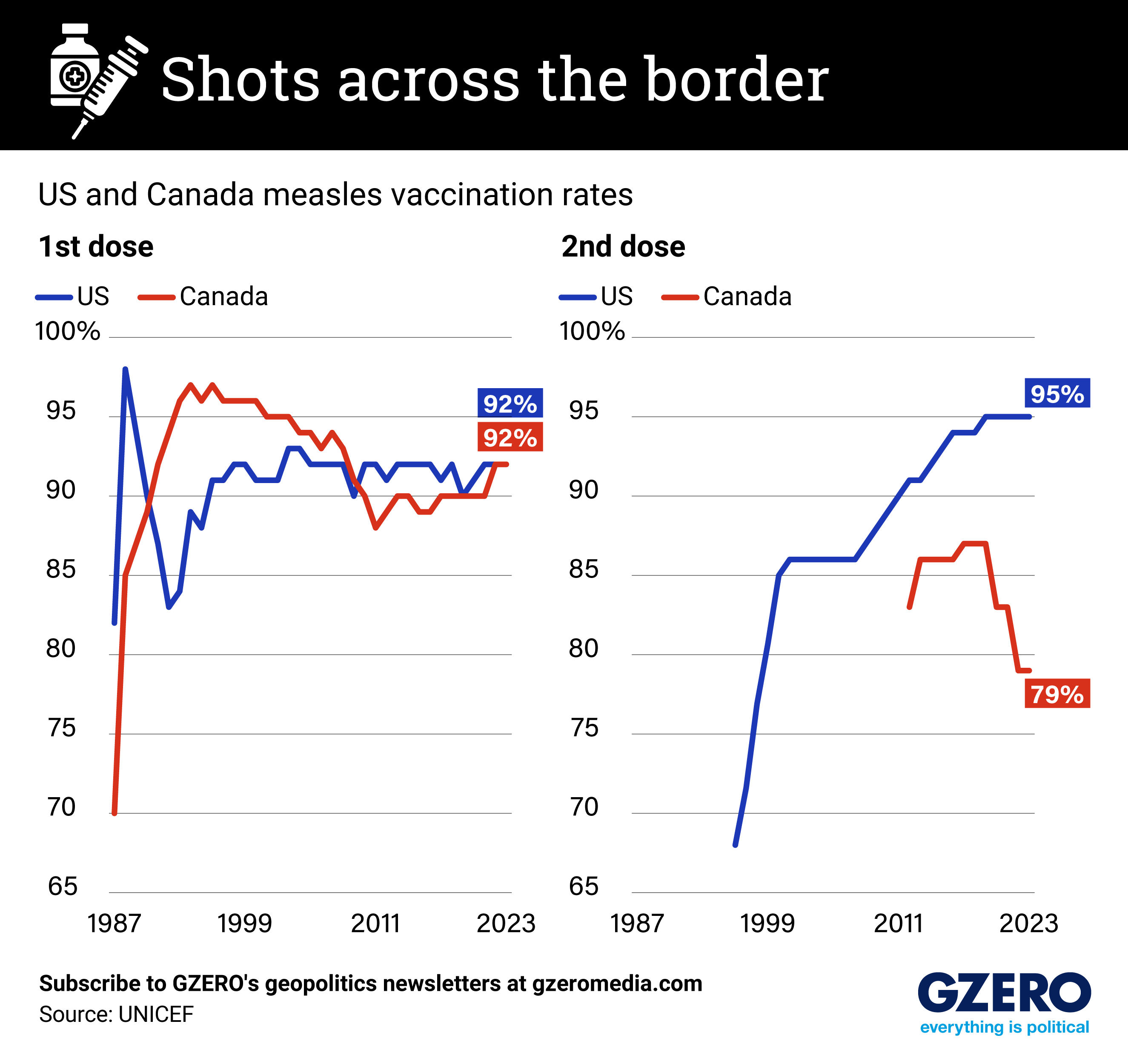Cases of measles, a highly contagious disease that can linger in the air for up to two hours, are rising in Canada. There have been small outbreaks across Southwestern Ontario since the beginning of the year, prompting public health officials to urge Canadians to ensure they have had both their first and second vaccinations.
Projections from a team at Simon Fraser University show that vaccine coverage below 85% can lead to dozens of cases within small communities — or even hundreds if immunization rates are lower than that. Rates of getting the second vaccine have dropped from 87% in 2017 to 79% in 2023 across Canada. Getting the second dose increases a person’s immunity from 85% to nearly 100%, according to health officials.
Meanwhile, south of the border, Robert F. Kennedy Jr., a prolific vaccine skeptic, is set to be confirmed this week. He walked back some of his past statements on vaccines during his confirmation process, calling himself cautious rather than skeptical, but has continued to surround himself with influential figures in the anti-vaccine movement.
But neither his rise in influence nor the increase in anti-vaxxer misinformation has affected measles vaccination rates – at least not yet. Vaccination rates are much higher in the US than in Canada, with 95% of the population having received their second vaccine from 2019 onward.